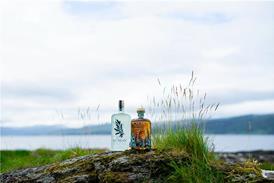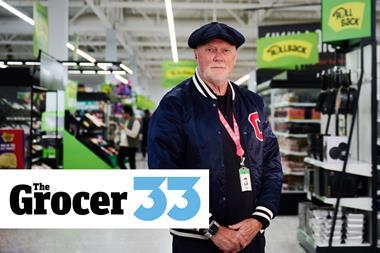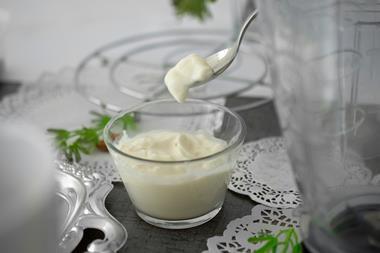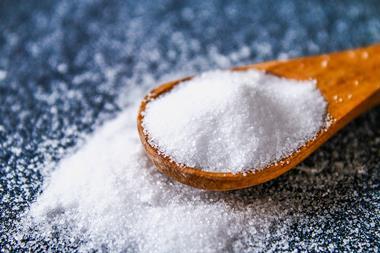There's a storm brewing in the fresh food aisles of Britain's supermarkets. Prices of British organic food must rise significantly and quickly if the sector is to head off a looming domestic supply crisis in milk and meat.
New Year's Day saw the end of a derogation that allowed some non-organic animal feed to be used for cattle and sheep. It is now illegal to feed them anything containing non-organic products, including straw. Pigs and poultry, meanwhile, now have to be fed a minimum of 90% organic food, up from 85%.
Organic animal feed prices have risen as a result, and the timing couldn't be worse.
With demand for organic and local fresh produce at an all-time high, a chronic supply crisis in the organic raw material market had already led to massive price hikes. Organic feed prices were up from £180 a tonne two years ago to £350 in the latter part of 2007. The ending of the derogation last month is likely to drive prices towards a projected £400 a tonne this year. The surprising result: few new farmers are converting to organic, and several that are organic are starting to go back to conventional production.
Experts predict that, unless consumer prices for organic meat and dairy products increase, we will see product shortages or a return to a heavy reliance on imports. Currently, just 30% of organic food in the UK is imported, down from 70% in 2002. For the retailers to reverse this trend would be considered a backward step and against the grain of consumer demand for local produce.
"There is enormous resistance from retailers to higher prices," says Richard Jacobs, chief executive of certification body Organic Farmers and Growers. "This feed price rise needs to be reflected on supermarket shelves."
Philip Stocker, head of food and farming at The Soil Association, estimates that organic beef and lamb prices need to rise by 10% to 15% to keep domestic supplies flowing. Beef needs to be about £3.40 a kilo for farmers, with the Single Farm Payment, and over £4 a kilo when that is removed. Lamb prices need to be about £3.20 a kilo before, and £3.50 afterwards.
It is no surprise that retailers are reluctant to raise prices but those who are genuinely committed to British produce will find themselves cornered into doing so. The Asda press office insists: "The industry has had plenty of time to prepare for this and we'll react accordingly to ensure the consumer does not feel the cost increase."
"We operate in a marketplace," admits Chris Brown, head of sustainable sourcing at Asda. "If the market price has to rise because of shortages in organic beef and milk then it has to rise. What we don't know is how much consumers are prepared to pay for organic. But we'd rather take the British produce as we're committed to local sourcing."
Waitrose has already upped the price of its organic meat. "We have a long-term policy of working collaboratively with our farmers to ensure any increased feed costs are costed into the price they receive for their products. As such, there has been some modest increases in the end price of our organic meat," says a spokeswoman.
But she admits it is now buying feed from overseas. "Wherever possible we source our organic feed locally. However, there is currently not enough domestic feed to satisfy demand, so it is necessary for us to source some feed from overseas, particularly Eastern Europe."
The supply problem is hitting dairy organic supplies as well, as Richard Hampton, sales and marketing director for the Organic Milk Supplies Co-operative (OMSCo), explains.
"In 2007 half as many dairy farmers turned organic as was required to satisfy market growth," he says. "In 2007 only 40 million litres of new organic milk came forward, compared with the 60 to 80 million litres required."
Chris Laycock, from dairy experts Kite, estimates milk prices need to increase by between 2ppl and 3ppl to 40ppl for farmers. "The premium between conventional and organic milk needs to be about 9ppl or 10ppl or it isn't worth farmers converting to, or staying in, organic," he says.
Others are arguing for higher prices for liquid milk to ensure a regular supply of milk all-year-round. This is far more expensive than producing it mainly in the spring and summer because more of the scarce and expensively imported feed is required.
"If the retailers and processors want organic milk produced all year round they need to increase the farmer price to more than 40ppl to cover the extra costs," says David Denning, who supplies five million litres of organic milk a year to Dairy Crest. "Already I'd make 2ppl more if I produced conventional milk. The feed derogation will cost us an additional 4ppl, so we're 6ppl down. I'd make more money converting back, and I know a lot of my fellow organic farmers would do too. We need more than 40ppl now to bring us stability, let alone stimulate conversions."
The ending of the derogation is also badly timed for the £2bn industry because it has coincided with an apparent economic downturn .
Organic food prices are going to have to increase, but that could affect consumption, especially as it coincides with an economic slump.
The organic sector has enjoyed growth of 26% a year for a decade, but this has been when disposable incomes have been high. Now they are not. Mortgages, fuel prices and food inflation are eating into the amount people have to spend on food.
However, the Soil Association and OMSCo don't believe it will affect market growth, or that consumers will change from organic.
If they are right, it means a continuing growth in organic consumption at a time when domestic production is at best static and at worse falling dramatically.
In addition, reliance on imports of animal feed is already growing - including those from far-flung places such as China - and the UK's self-sufficiency in organic grain supplies has fallen to under 50%. It's not a particularly green story for supermarkets as they try to promote an environmentally conscious image.
Unless the UK organic sector as a whole - from arable farmer through to retailer - solves this problem then 2008 could see a return to significant imports of organic food, on top of the already growing imports in animal feed. It's a choice that supermarkets - and consumers - will have to
ponder hard.n



















No comments yet